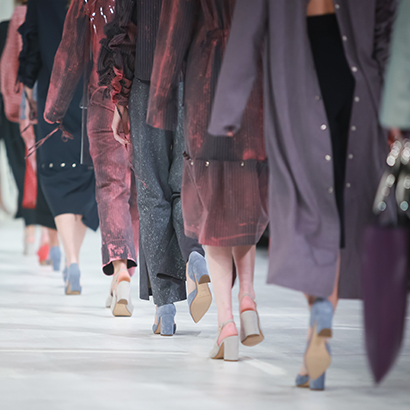
Luxury Products and Fashion
The world of fashion raises legal issues that can be as intriguing as the designs that glide down runways. Our lawyers are ready with integrated, detailed, and creative solutions to address the many challenges faced by luxury and fashion brands around the world.
From intellectual property matters to superannuation, we handle a myriad of issues affecting these businesses throughout the life cycle of their products. As a founding partner of the Luxury Law Alliance and the Luxury Law Summit, we are on the forefront as thought leaders. We have unique partnerships with the Camera Nazionale Della Moda Italiana, The Fédération française de la Couture, du Prêt à Porter des Couturiers et des Créateurs de la Mode in France, and The Melbourne Fashion Festival in Australia. These important connections place our firm at the forefront of industry events across the globe.
Our experienced Luxury Products and Fashion lawyers provide counsel on a broad spectrum of matters, including:
- Artificial intelligence;
- Blockchain;
- Commercial agreements, collaboration, and licensing;
- Distribution strategies and antitrust policies;
- Insurance;
- Risk management;
- Intellectual property;
- International trade;
- Logistics transactions;
- Real estate;
- Regulatory and compliance;
- Restructuring, mergers and acquisitions, capital markets, and securities; and
- Technology and data protection.
Legal 500
Ranked by The Legal 500 United Kingdom for Intellectual property: trade marks, copyright and design in London, 2025
Ranked by The Legal 500 United Kingdom for Commercial Contracts in London, 2025
Ranked by The Legal 500 United Kingdom for Retail and Consumer in London, 2025
Other Recognitions
Recognized as a Leading Firm by The Fashion Law in “The Fashion Law 2025: The Top US Law Firms for Retail Companies”
Thought Leadership
The year 2025 saw significant regulatory activity in the realm of digital assets. The US Congress and financial regulators took steps to create and implement a clear legal framework to facilitate financial transactions using digital assets, and they will continue to do so in 2026.
On 20 February 2026, the US Supreme Court issued its decision in Learning Resources, Inc. v. Trump, consolidated with Trump v. V.O.S. Selections, Inc., addressing whether the President has authority under the International Emergency Economic Powers Act to impose tariffs.
In this article, Dr. Jan Boeing and Arnaud Dobelle outline the key milestones of the new regulatory framework, its interplay with financial sector rules such as DORA and PSD2, and what the upcoming Digital Omnibus proposal means for organisations deploying AI in Europe.
New York state and New York City continue to advance an extensive and evolving framework of workplace regulations.

